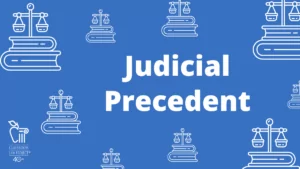In the previous Part, the author examined the grounds on which advertisement is not allowed in legal profession, and argued that although the legal profession should be treated distinctly from conventional business, the lawyers need to sustain their practice and earn their livelihood, and hence, a total prohibition is unjustified.
International Perspectives
We will now examine the other jurisdictions that have allowed advertising in the legal profession to examine how they have regulated such advertising and whether there are any negative impacts that have been reported.
A. United States of America
The jurisprudence of the USA on this aspect is interesting as the USA also imposed a complete prohibition on advertising earlier under Canon 27 of the 1908 Canons of Professional Ethics. This was on the same grounds of law being a noble profession which are followed in India. However, this position changed after the case of Bates versus State Bar of Arizona where the USA Supreme Court recognized that a state cannot constitutionally forbid a lawyer from advertising in a newspaper to collect fees for standard legal services and that the First Amendment covers advertising by attorneys. However, a state may establish reasonable limitations as to “time, place, and manner” and prohibit commercial expression that is “false, deceptive, or misleading.” Thereafter, legal advertising was allowed provided that the rules set up by the American Bar Association in that regard are followed.
The rules prohibit mentioning the word “expert” unless the lawyer has been certified by an organization that has been approved by an appropriate authority. It prohibits false advertising which includes not making promises and using superlatives like “best”, “lowest” and “most” in the advertisements. The rule further states that the following constitutes false and misleading communications: (1) a substantial misrepresentation of fact or law; (2) a statement that is likely to give rise to irrational expectations about the outcomes that an attorney can obtain; and (3) a comparison of the attorney’s services with those of other attorneys that cannot be supported by facts.
B. United Kingdom
In the United Kingdom, legal advertising has been allowed since 1986 when the Law Society in England and Wales decided to lift such restrictions in response government’s intent to break up the solicitors’ conveyancing monopoly. With the exception of television, solicitors were permitted to advertise in almost all media.
The Solicitors Regulation Authority (SRA) and the Bar Standards Board (BSB) are the main regulatory bodies in the UK that oversee advertising by solicitors and law firms. The codes of conduct that these regulating bodies have instituted delineate the tenets and regulations that regulate advertising techniques within the legal profession. Like the USA, the rules focus on providing transparency and avoiding misleading advertisements.
In the matter of Hetherington & Others v The Law Society, the court ruled that solicitors’ advertisements could not mislead consumers or damage the standing of the legal industry. In order to preserve the integrity of the legal profession, this case established a benchmark for extremely moral conduct in advertising. Similarly, in the matter of R v The Advertising Standards Authority ex parte Law Society, the court decided that the Advertising Standards Authority (ASA) could control lawyers’ advertising choices and emphasised the need for outside monitoring to ensure that advertising laws are appropriately adhered to.
C. European Union
Historically, the legal professions in the European countries frowned upon advertising of legal services by lawyers. However, this started to change when the EU adopted the Code of Conduct of Lawyers in the European Union which permits lawyer advertising along with the Lawyers’ Services Directive, the Diploma Directive. In 2006, a Charter of Core Principles of European Legal Profession was also adopted in Brussels. The charter lays down that solicitors must always keep in mind the integrity and good repute of the individual lawyer, as well as the dignity and honor of the legal profession. Additionally, it says that a lawyer has the right to disclose information about their services to the public as long as it is truthful, not deceptive, and considerate of other fundamental principles of the legal profession as well as the duty of confidentiality. A lawyer may use any kind of media, including the press, radio, television, electronic commercial communications, and others, for personal publicity as long as it conforms with the regulations.
Impact of Advertising and Public Reaction
Since the time, the whole issue of lawyer’s advertising came into being, a number of research has been conducted to examine the impact of lawyers’ advertising and the attitude of consumers towards it. For instance, Muris (1979) laid down that advertising will reduce the prices of legal services without jeopardizing quality. The paper also held that advertising would help to satisfy the needs of legal services of middle-income persons. Burton (1991) found that consumers viewed legal advertising favourably as it provided them with an informed choice. Kite and Kiser (1985) concluded that attorney advertising does not negatively affect the credibility or dignity of the legal profession. Parkinson and Neeley (2003) found that attorney advertising is most likely to attract lower-income and lower-education non-Caucasian clients
Conclusion
Not allowing online legal platforms to operate hampers first generation lawyers from rising in the profession and harms people’s right to make an informed choice – as a result, they will be restricted to a few lawyers in their locality or lawyers their relatives and friends know. Such online platforms are beneficial to society provided they are regulated in a way that ensures that professional integrity and professional ethics remain along with the people learning about a variety of lawyers. Such restrictions also prevents legal startups from coming up in India.
While the Madras HC mentions that allowing advertisements will promote inequality and lawyers with money will have an added advantage. However, there are various other amenities as well that privileged lawyers enjoy that include having a good chamber, access to legal search engines etc. Keeping all these things in mind, advertising should not be considered any different. It is also contended that not allowing advertisements will harm first generation lawyers who rely on such tools and closing down such platforms will only help those lawyers who have been in the market for decades.
Advertising allows consumers to compare services without having repeated personal experiences. However, the Author feels certain disputes that are of high risk and stake such as medical negligence, rape, etc should be out of the scope of advertising. These can be due to privacy concerns, risk of spreading misinformation, escalation of matters etc. The services best suited for advertising are standardisable and are simple and low risk. This can address the concern that allowing advertising will lead to the selling of justice. Additionally, it is believed that regular customers have a higher chance of receiving services at the desired price and quality than consumers who have less access to experience and reputational information.
Those who wish to enter legal practice must also navigate through the same business concerns, economic factors, and commercial constraints that businesspersons have to face. Hence, a complete prohibition on advertising may effectively result in excluding such people from the legal market or making them dependent on senior chambers for getting cases and briefs.
The issue of lawyer advertising has always been a contentious issue and a more comprehensive approach needs to be taken. Perhaps a careful analysis of its working and impact in other countries can be done. Allowing advertising carefully will not harm the integrity of the legal profession. With the positive response to allowing legal services advertisements in other countries, India should also allow it. The principles on which the regulations of other countries control advertisements is similar to what the Author proposes. It is high time we allow legal services advertisements. Such a step can surely boost the contribution of the legal industry to the economy.
Yash Dahiya is an advocate practicing in Goa and an LLM Candidate in International Commercial Arbitration at Stockholm University, Sweden.
Ed note: This article was edited and coordinated by Hamza Khan from the Student Editorial Team.







Differentiating Name board from Advertising board needs to be considered for lawyers profession.
Coimbatore Lawyers
qx2lqc
It is very important topic and need to be discussed. Well, I’m looking for a reliable law essay writing service to help me with my studies. Has anyone used a good service that provides well-researched and high-quality content? I’d appreciate any recommendations or advice on what to look for in a service. Thanks!
Choosing a good law essay writing service is important, especially when you need well-researched and clear work. Look for services that focus on law topics, offer original content, and let you communicate with the writer. It also helps to check reviews and make sure they deliver on time.
I’ve used a writing service before that gave me well-researched and good-quality work. What helped me was choosing a service that’s known for meeting deadlines and understanding complex topics. It really made a difference for my studies. Hope you find a great one too!
When looking for a law essay writing service, consider factors like writer expertise, content quality, originality, timeliness, and clear communication. Check reviews, ask for samples, and ensure plagiarism-free work. A reliable service can help you achieve academic success. I think you should check law essay writing service https://essaypro.com/law-essay-writing-service here you will find qualified staff thar will help you in all your academic work.
Academic work sometimes really irritates me too. I also was thinking to get help from someone. Thanks for sharing! I was actually looking for a reliable law essay writing service too, and EssayPro seems like exactly what I need. I’ll definitely check them out!